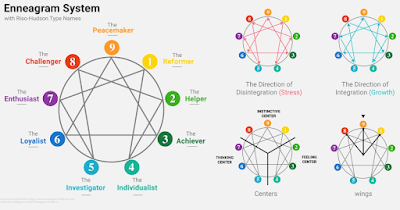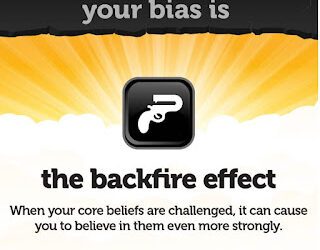
I’ve been explicitly focusing on psychological apologetics for a few years now, but it just dawned on me that I’ve never clearly defined it, at least not in writing. While I’m not strictly the only person doing psychological apologetics, I am doing it more actively and directly than anyone else right now. With that said, this is my working definition of psychological apologetics.
The short definition is that psychological apologetics is the use and application of psychological sciences for apologetics. I think there are some terms that might be ambiguous there, so let me explain them in more detail.
I am using the word apologetics in a very broad sense to refer to any argument for or defense of Christianity. In essence, anything that attempts to show Christianity is true counts as apologetics. This also bleeds over into theology in the sense that it can inform what is true theologically.
Likewise, I use psychological sciences in a very broad sense to refer to anything that might be considered social or cognitive science. This includes all sub-disciplines of psychology, psychiatry, counseling, neuroscience, sociology, economics, anthropology, linguistics, political science, data analysis or statistics, design, communications, business, and some areas of biology, computer science, philosophy, and medicine.
Finally, what do I mean by the “use and application of?” The “use of” refers to using information from any social or cognitive science to show Christianity is true. For instance, the use of research on hallucinations to show that Jesus’ resurrection appearances weren’t hallucinations. The “application of” refers to applying psychological sciences to the way we do apologetics. For instance, the science of persuasion suggests that people will be more likely to listen if you listen first, and so applying this to apologetic situations by genuinely listening to people share their opinions and feelings.
Areas for Psychological Apologetics
Now that psychological apologetics has been defined, hopefully clearly, here are some of the many topics that psychological apologetics can be used for.
1. Persuasion
The science of persuasion is hugely relevant for doing apologetics effectively. Most apologists want to use apologetics for evangelism, but most unknowingly write or speak in a way that appeals mostly to people who already agree with them. Apologetics can and should serve this need, to strengthen the faith of believers, but we need our methods to align with our goals. This is perhaps the most important area that psychological science can be utilized for apologetics. There is a lot of science on this topic and the effect that a message has on different audiences. Having people trained in this area of psychology and communications and sharing that information with other apologists could have tremendous benefits for all apologetic arguments.
2. Memory
The case for the resurrection largely depends on individual and collective memories, which are topics studied by psychologists. There has been great work done in this field by other Christian scholars, but there is potential for much more depth in this area based on the science of memory. This research could also be applied to other religious experiences such as witnessing a miracle.
3. Hallucinations & Delusions
There is a need for psychological apologetics in this field for a couple reasons. One is for the case for the resurrection, to rebut the claims that the resurrection appearances were just hallucinations. The other is for the investigation of extraordinary events such as miracles, near-death experiences, ghost sightings, UFO sightings, and other para-psychological claims. There’s been good work done here by other scholars, but again, there is more depth possible with all the scientific literature on these topics.
4. Sex, Sexuality, and Gender
These topics are very big in culture right now and I don’t expect that to change any time soon. There are a lot of people speaking on these topics, but the use of scientific evidence is pretty limited. A genuine expert who understands the science, and not just a person who has a study or two they can cite to support their view, would be a great asset for apologetics.
5. Bias or Motivated Reasoning
We are not nearly as rational as we think we are, and when I say “we,” I am referring to all people, including atheists. We have a lot of tendencies that lead us to false conclusions. Having a better understanding of how humans reason can lead to stronger arguments and better conversations. For instance, a common objection to the teleological argument is that we have a tendency to see patterns in randomness (apophenia), but having an awareness of this helps us overcome this objection and make the argument stronger. Additionally, understanding the way we reason makes it a lot easier to stay calm and speak respectfully so that we can be more persuasive.
6. Conversion & De-Conversion
Most apologists want to convert people to Christianity, unfortunately, few have a solid understanding of the factors that lead to conversion. More emphasis on what is and isn’t effective for conversion, and what factors drive people away from the faith can help apologists be more effective and help strengthen the church as a whole
7. Mental Health
Mental health questions are probably the most frequent ones that I get from other Christians. They are often something like, “can I be a Christian if I have _________?” Fill the blank with any number of labels such as depression, an addiction, sexual desires toward an animal, and on and on. These types of questions that people have, or the way they’ve seen the church respond to mental health topics, are a huge barrier for people.
8. General understanding of Science
I wager that most people think they understand science, but really don’t have a great grasp of it at a concrete level. Many people think of psychology more as part of the humanities than a science, but in some ways, psychology has to be more scientifically rigorous than other scientific disciplines. The reason for this is because there are so many more factors that can affect the outcome of psychological studies than there are for other subjects. Psychological apologetics can be extremely useful for communicating why science is so great and effective and what it does and where it is limited. This may include talking about the trustworthiness of science for all kinds of topics such as vaccines, climate change, creation, and more. All disciplines are a little different, but there are general principles and processes that are shared among all the sciences that social scientists can weigh in on as another voice.
9. Mind/Brain/Soul/Spirit
Psychologists study thoughts and behaviors, all of which come back to the brain. Does that include the mind, soul, and/or spirit? These are questions that reach beyond science, but there is scientific evidence that can help inform our conclusions on these things or make some views seem more or less likely.
10. Free Will
Debates about free will are similar to the point made above, at least as far as psychology is concerned. The free will defense is popular in current apologetics, but Christians vary quite a bit on their views of free will. The scientific evidence is sometimes used on both sides (I know there are technically more than two, but that’s not relevant at this point) of the argument so having people more knowledgeable about that science can be very helpful.
11. Marriage, Relationships, Parenting, Leadership, and Discipleship
All these topics are within the realm of psychology and all relate to discipleship and modeling Christ-like behavior. The psychology of marriage, relationships, parenting, and leadership can help Christians do this more effectively, in a way that will produce more disciples and disciples who are more mature. Additionally, there are arguments that can be made, or at least objections that can be answered based on this science. For instance, an objection to theism that goes back to Freud is that people believe in God because He serves as a replacement father for people who had a bad relationship with their father (or no relationship). The Christian psychologist Paul Vitz found the opposite was actually the case in his book The Faith of the Fatherless: The Psychology of Atheism.
12. Stereotyping, Prejudice, and Discrimination
Race and all other -isms are all over the public headlines right now. Among Christian circles, Critical Race Theory (CRT) gets all the attention, but there is a ton of social science research on this topic that has nothing to do with CRT. Psychological apologetics can offer unique insights to these and other cultural topics to remove barriers to the gospel.
13. Art, Beauty, and Imagination
We often hear people say “it’s an art, not a science,” but did you know there is a science of art and beauty? This is a topic psychologists study to understand what people think is beautiful and how art affects our thoughts. Psychological apologetics can understand and apply this science to help apologists reach more people and be more influential. Houston Baptist University has an apologetics program that emphasizes the arts and imagination, which is wonderful and under-utilized in apologetics. Having psychological apologists in this area would be a huge asset to the field.
14. Psychology and Theology
There are a ton of ways in which psychology can inform our theology, which may or may not relate to apologetics, although I tend to think that good theology is always part of apologetics. For instance, the Bible warns us not to sleep too much. Well, what is too much? Psychology can help us answer that question so that we don’t sin by sleeping too much or too little. This is just one of many ways that psychology can inform our theology, which affects our apologetics.
15. Other
All the categories listed are just broad, general topics that are most relevant to apologetics right now; however, you never know what opportunities may present themselves in the future for psychological apologetics. It might be other culturally relevant topics or a new objection that comes up based on social and cognitive sciences and we need people trained in these sciences to better answer these challenges. For instance, my most read article is on the enneagram but this is not an obvious need or relevant topic for apologetics.
How to Start Doing Psychological Apologetics
If psychological apologetics sounds interesting or useful to you, it’s important to gain a proper understanding of psychology and learn apologetics fairly well. To do get started, check out my list of resources for psychological apologetics.
If you think it might be something you eventually want to specialize in and do for a career, then you likely need to get a graduate degree (ideally a doctorate) in some field of social or cognitive science and a graduate degree in some field of theology or biblical studies. Whatever your level of interest or career goals, there are plenty of resources available for you to start using psychological apologetics.



